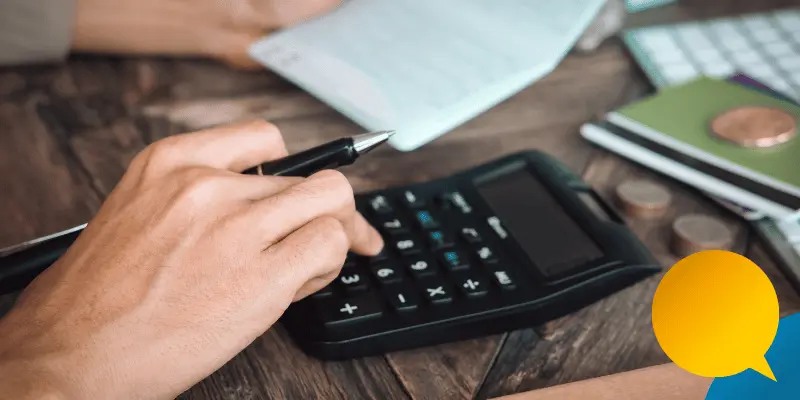- Written by Advice Centre Group Editorial Team
- Last updated: 15 September 2025

What Can Bailiffs Take?
Having bailiffs turn up at your door is a frightening experience. For many people, the biggest worry is: “What if I don’t actually own anything worth taking?”
The truth is, bailiffs don’t have free rein to clear out your home. They can only take certain items, and in many cases, essentials are completely protected by law. If you don’t have any goods of value, the bailiff may leave without removing anything. But that doesn’t mean the problem ends there. Creditors still have other options to recover what you owe, and it’s important to understand what might happen next
Choosing an IVA is a big step, so it’s important to think about how it could impact you personally. While an IVA can affect your credit score for the duration of the agreement, it also offers strong legal protection, which can be a lifeline for many.
At the end of the day, it’s about putting yourself first and choosing the path that makes the most sense for you. Let’s explore whether an IVA could be the right solution for your financial journey by looking at IVA Pros And Cons
When Your Ready CLICK HERE To Get Started Today?
What Can Bailiffs Take?
What Bailiffs Can and Cannot Take
Bailiffs (also called enforcement agents) are allowed to seize items that could reasonably be sold to cover part of your debt. Typically, this includes:
-
Luxury items such as televisions, games consoles, or high-end electronics.
-
Vehicles registered in your name, especially if they are not on finance.
-
Valuables like jewellery, art, or antiques.
However, there are strict limits. Bailiffs are not permitted to take:
-
Everyday essentials such as beds, clothes, cookers, or fridges.
-
Tools or equipment you rely on for work.
-
Items belonging to other people (though you may need to prove ownership).
-
Pets and assistance animals.
-
Goods that are still on hire purchase or rental agreements.
If you don’t own anything beyond these basics, the bailiff cannot legally remove your possessions.

So, What Happens If There’s Nothing to Take?
If the bailiff leaves empty-handed, your debt doesn’t vanish. Instead, the enforcement agent will report back to your creditor, who then decides on the next step.
Some of the most common outcomes include:
1. A Return to Court
If your debt started with a County Court Judgment (CCJ), the creditor may ask the court to enforce payment in other ways. This could mean:
Attachment of Earnings Order – money is deducted directly from your wages before you’re paid.
Charging Order – if you own property, the debt can be secured against it. The creditor could then recover money if you sell or remortgage your home.
2. Deductions from Benefits
Certain debts, such as council tax arrears or benefit overpayments, can be taken directly from your benefits. This is usually a small, regular deduction until the debt is cleared.
3. Freezing Your Bank Account
In some situations, creditors may apply for a Third-Party Debt Order, which allows money to be taken directly from your bank account. This is less common but still an option available to them.
4. Negotiating a Payment Plan
If enforcement action is unsuccessful, creditors often accept a payment plan. This is usually based on what you can realistically afford each month. It can stop further action and give you some breathing space.
Can Bailiffs Force Entry If You Have Nothing?
For most debts, bailiffs cannot break into your home. They can only enter through an open or unlocked door. The main exceptions are criminal fines, tax debts, or magistrates’ court orders, where they may be allowed to force entry if approved.
If you don’t have anything valuable, bailiffs are unlikely to push for forced entry, since it won’t help the creditor recover money. Still, it’s sensible to keep your doors locked and to know your rights before speaking to them.
Why Ignoring Bailiffs Isn’t the Answer
Even if a bailiff can’t take your belongings, the debt still exists. Ignoring letters or visits often makes things worse, as extra charges and fees may be added. Over time, this increases the amount you owe.
The best approach is to face the issue head-on. By seeking advice early, you can explore solutions that stop bailiff action and deal with your debt in a way that’s manageable.
What You Can Do Straight Away
If you’re in this position, a few simple steps can help:
Keep your doors locked and don’t let bailiffs in unless they have the legal right.
Ask to see their ID and paperwork before speaking to them.
Keep records of any letters or visits.
Speak With Us As Soon As Possible – CLICK HERE TO START TAKING BACK CONTROL
Key Takeaway
If you don’t own anything a bailiff can legally take, they cannot strip your home of basic essentials. But that doesn’t mean the matter ends there. Creditors can still pursue the debt through the courts, your wages, benefits, or bank account.
Rather than waiting for this to happen, speaking to Advice Centre Group puts you back in control. You may have more options than you think, and the right solution could prevent bailiffs from returning altogether.
Get Support Today
If you’re worried about bailiffs and want to know your options, we can help. At Advice Centre Group, we specialise in dealing with bailiff action and finding debt solutions that protect people in difficult situations.
We have supported 11,125+ individuals on their journey towards financial well-being.

Frequently Asked Questions
What Can Bailiffs Take?
The Question We Get Asked The Most –
Luxury items such as televisions, games consoles, or high-end electronics.
Vehicles registered in your name, especially if they are not on finance.
Valuables like jewellery, art, or antiques.
There are strict limits. Bailiffs are not permitted to take:
Everyday essentials such as beds, clothes, cookers, or fridges.
Tools or equipment you rely on for work.
Items belonging to other people (though you may need to prove ownership).
Pets and assistance animals.
Goods that are still on hire purchase or rental agreements.
If you don’t own anything beyond these basics, the bailiff cannot legally remove your possessions.
This does not mean they will stop though, Contact Us Today to See How We Can Stop Them.
What Happens If I Have Nothing For Bailiffs To Take?
Having bailiffs turn up at your door is a frightening experience. For many people, the biggest worry is: “What if I don’t actually own anything worth taking?”
The truth is, bailiffs don’t have free rein to clear out your home. They can only take certain items, and in many cases, essentials are completely protected by law. If you don’t have any goods of value, the bailiff may leave without removing anything. But that doesn’t mean the problem ends there. Creditors still have other options to recover what you owe, and it’s important to understand what might happen next
CLICK HERE – See Our Post On What Happens If I Have Nothing For Bailiffs To Take?
What Can A Bailiff Do
Understanding What A Bailiff Can Do can be difficult on your own
CLICK HERE to see how they work and see how we can help navigate the path for a way out
Council Tax Bailiffs
Do you have council tax bailiffs contacting you and visiting your home
At Advice Centre Group we know how stressful that can be
CLICK HERE to see how we deal with council tax bailiffs
What If A Bailiff Only Wants Full Payment
Dealing with Bailiffs can be really stressful – We Understand.
Especially when they are saying they only want full payment
CLICK HERE to see how we deal with them for you
Learn more about managing your debt:

Call us – 0161 660 6270
Email us – Enquiries@advicecentregroup.co.uk


You can visit the Money Helper website to find out more about managing your money and to get free advice, they are an independent service set up to help people manage their money
Advice Centre Group Ltd registered in England and Wales (14322979). Registered office: Second Floor A, Cheadle Place, Cheadle, Cheshire, England, SK8 2JX.
Adam Southard is authorised as a Licensed Insolvency Practitioner in the United Kingdom by the Insolvency Practitioners Association, We only provide advice after completing or receiving an initial fact find where the individual(s) concerned meet the criteria for one of our insolvency solutions, therefore, all advice regarding Individual Voluntary Arrangements (IVA) is given in reasonable contemplation of an insolvency appointment.
Adam Southard is licensed to act as an Insolvency Practitioner in the UK by the Insolvency Practitioners Association. Office Holder No. 11930
Insolvency Practitioner Directory- Insolvency Practitioner Details (bis.gov.uk)
What you need to know about Individual Voluntary Arrangements
(Insolvency Service)
We provide solutions to individuals throughout the UK, We Will help recommend solutions available to your circumstances in which you can then make an informed decision about which solution you qualify for is best for you and your circumstances.




